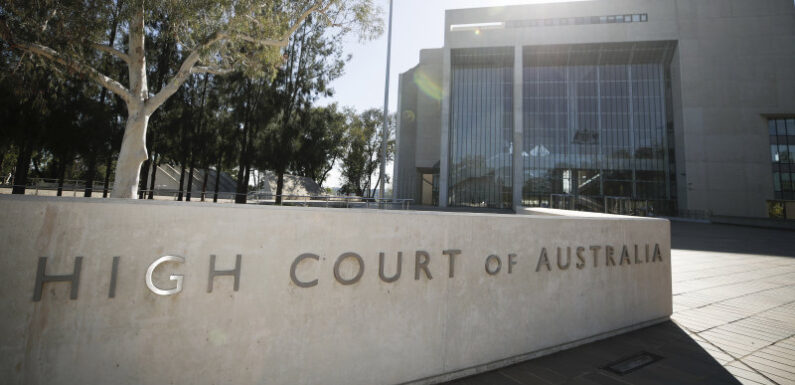
Save articles for later
Add articles to your saved list and come back to them any time.
The new laws rushed through federal parliament last week to impose curfews and ankle bracelets on former immigration detainees face their first High Court legal challenge as lawyers for a former Chinese student claim the new measures are unconstitutional.
Lawyers for the man, who was placed in detention last year after serving a prison sentence, lodged court documents on Wednesday night in a bid to have the Migration Act amendments declared invalid, alleging they treat former detainees as criminals and raise concerns about the separation of powers between parliament and the courts.
Lawyers for a former Chinese student released from detention after time in jail claim the government’s tough new monitoring rules are unconstitutional.Credit: Alex Ellinghausen
“The application before this Court raises issues of significant public importance, necessitating prompt and thorough judicial examination. These matters are not only pivotal to the affected individuals but also bear considerable weight in the broader context of constitutional law and administrative practice,” the court document says.
According to the application, the man – who has been given the pseudonym S151 – has been told by the Commonwealth he must abide by a curfew, requiring him to stay at home between 10pm and 6am.
The application says the imposition of a curfew and anklet bracelet monitoring significantly restricts the plaintiff’s liberty, privacy and autonomy.
“These conditions are akin to those imposed on individuals who are under house arrest or on parole, typically following a judicial determination of criminal guilt. Such severe restrictions on personal freedom should be considered punitive, especially when imposed arbitrarily and without due process,” it says.
“They are intrusive, restrictive, serve as a form of constant surveillance, impose a form of house arrest, and are typically associated with the punishment of criminal behaviour.
“Consequently, an expeditious resolution by this Court is sought to vindicate the integrity of legal and constitutional norms.”
The government has released at least 101 former detainees after a stateless Rohingya man, jailed in Australia for raping a 10-year-old boy, won a legal battle to overturn a 20-year-old legal precedent enabling people to be held in immigration detention indefinitely.
Many people with serious criminal histories, including convictions of rape and murder, have been freed since the decision. This includes Malaysian man Sirul Azhar Umar, who was sentenced to death in his home country for the 2006 murder of 28-year-old Mongolian translator and model Altantuyaa Shaariibuu.
Labor joined forces with the Coalition last week to rush through the new laws, which were described as draconian by human rights lawyers working with the detainees, with some foreshadowing that legal challenges to the new measures would be likely.
Home Affairs Minister Clare O’Neil has already said the government is canvassing whether to impose preventative detention measures, similarly used on terror suspects, to return some of the worst offenders to detention.
“If it were up to me, none of these people would have been released from detention and if I had any legal power, all of them would be right back in detention, the High Court’s decision that makes that legally impossible,” O’Neil said on Wednesday.
“And the job for me now is to manage the [High Court] decision in a way that best protects the safety of the Australian community, and I will be examining every and all options, and that includes a preventative detention regime.“
Human rights lawyer George Newhouse recently told this masthead the most likely avenue for a constitutional challenge was on the basis that the restrictions were, “in effect, a mandatory punishment, in breach of the principle of separation of powers”.
“Although the government may have gone some way to address that concern by granting a right of judicial appeal,” he said.
Cut through the noise of federal politics with news, views and expert analysis. Subscribers can sign up to our weekly Inside Politics newsletter.
Most Viewed in Politics
From our partners
Source: Read Full Article
